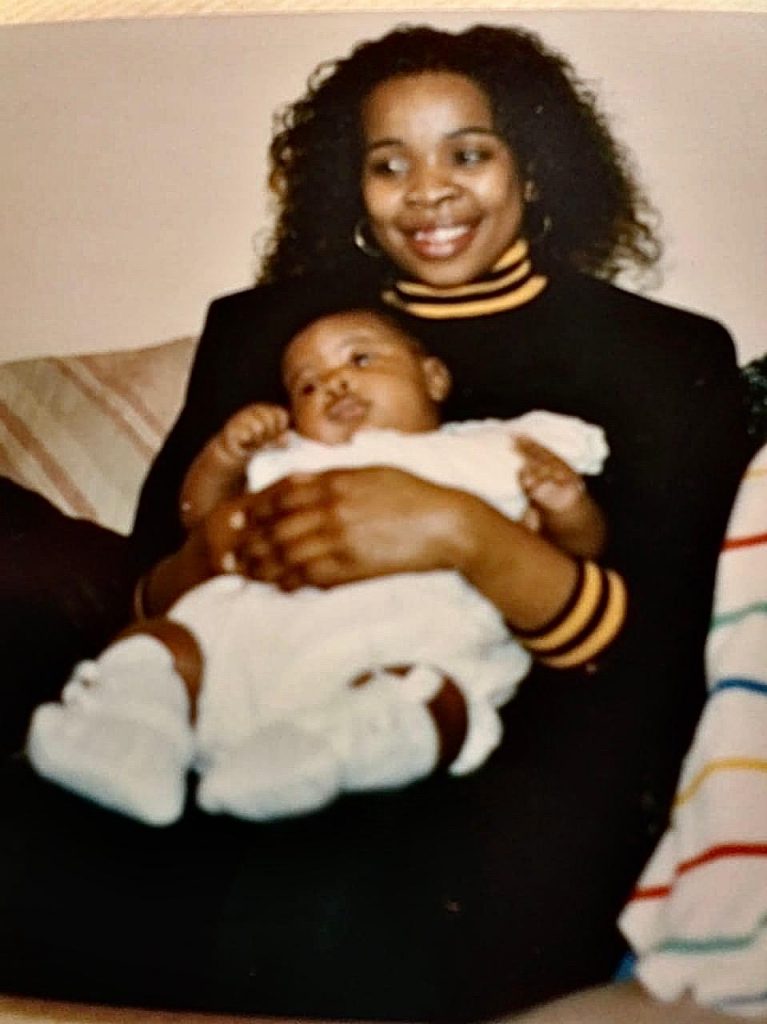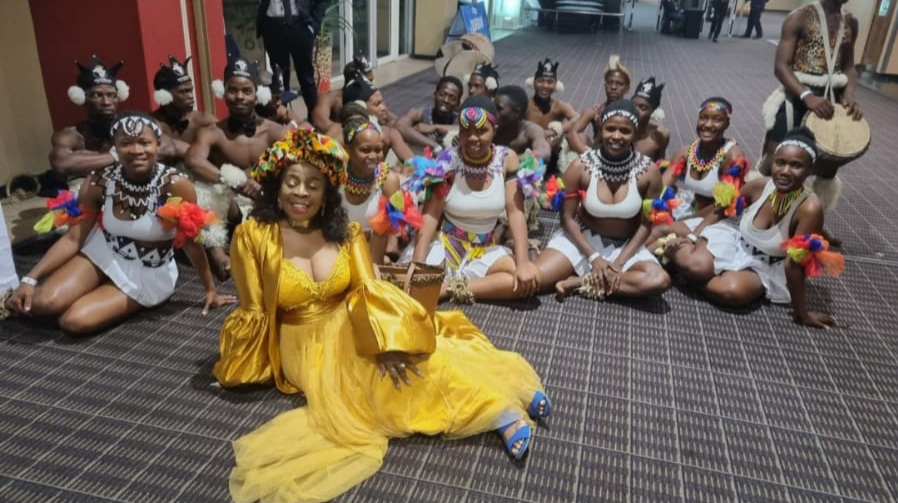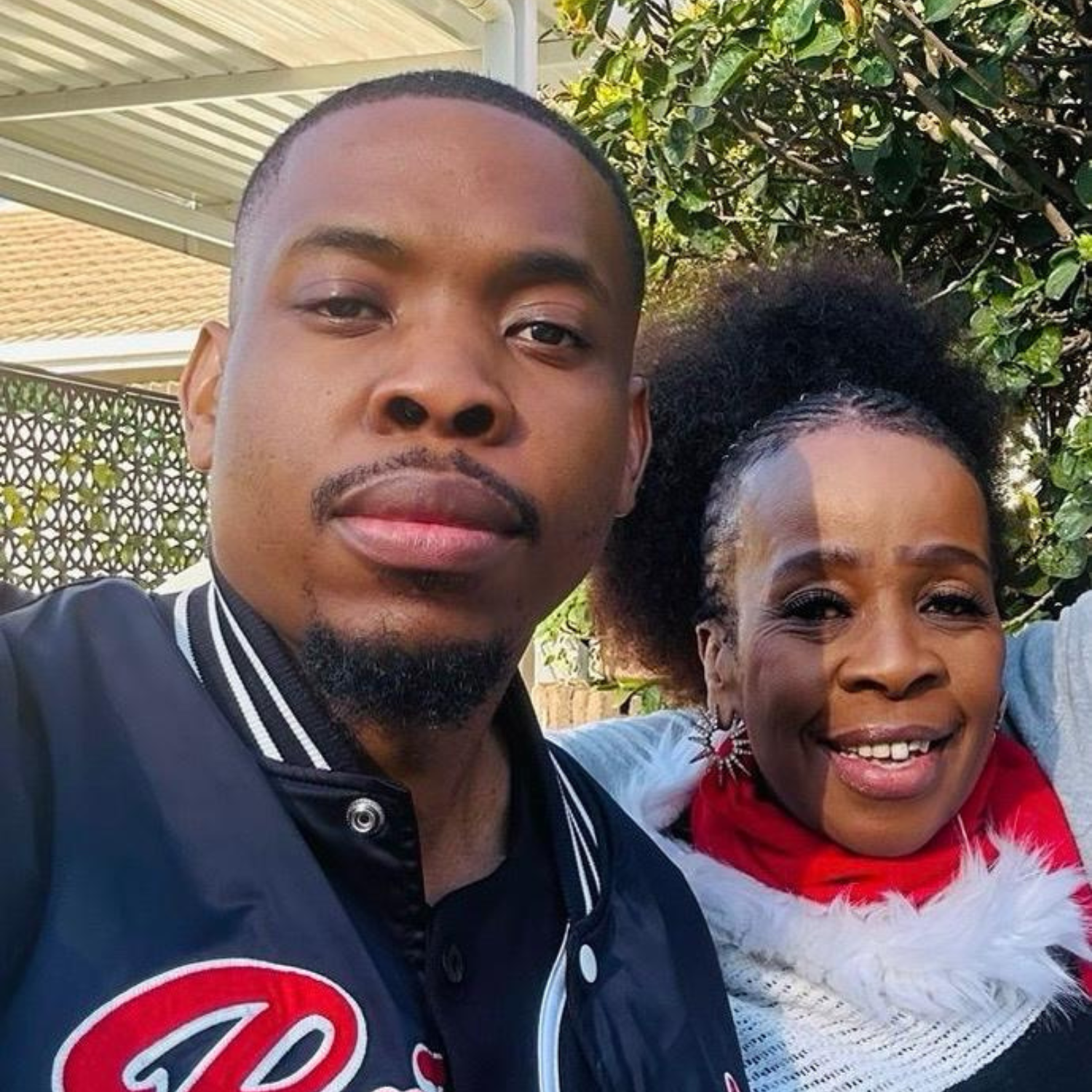In South Africa, legends who shaped our cultural identity often take their final bow in poverty, forgotten by the very nation they helped build.
Icons like Gospel star Solly Moholo, Kwaito pioneer Doc Shebeleza, legendary guitarist Madala Kunene, and the unforgettable Suthukazi Arosi all spent their last days pleading for public donations to cover medical bills. These were artists who gave their lives to music, yet when illness struck, they were left with nothing ─ no financial safety net, no government support, just a cry for desperate help. How does a country so rich in talent allow its legends to suffer in silence?
In an exclusive interview with Africa Jamz FM News, Lifa Arosi, son of the late modern jazz musician Suthukazi Arosi, speaks out about how the music industry failed his mother, failing to recognise and respect her talent.

How Suthukazi Arosi was neglected
Suthukazi passed away on 20 February 2025 at her home, after a battle with stage four cancer and was laid to rest last week Saturday in her hometown of Cela, Eastern Cape. Her career spanned for over 40 years.
Lifa highlights how, despite his mother’s contributions, she was frequently undervalued and unrecognised.
“My mother dedicated over 40 years of her life to being an ambassador for South African music, culture, and heritage. Despite her immense contributions, she was often overlooked and underrated. She spoke openly about the harsh treatment of artists in South Africa and her deep desire to seek better opportunities abroad—where she could achieve financial stability and have access to quality healthcare.
“Unfortunately, South Africa lacks sustainable policies to support musicians’ well-being. The government does not provide medical aid, pension funds, or financial safety nets for artists who have spent decades shaping our cultural identity. My mother became a victim of this neglect. No artist should have to battle a life-threatening illness without the financial means to support themselves. Even when we publicly announced her illness, we received no government assistance—only close friends and family stepped in. This proves a painful truth: those in power simply do not care,” said Lifa.

Why SA artists die poor
Suthukazi passed away while asking for donations. Lifa talks about why SA artists struggle financially and often die in poverty.
“There is a domino effect of neglect in the South African music industry. The cycle repeats itself: artists are celebrated while they are active, but the moment they step out of the spotlight, they are forgotten. This happens because:
- There is no financial infrastructure to support musicians in their later years
- The government fails to prioritise artists’ rights
- Recording and producing music is extremely expensive, making it hard for independent artists to sustain their careers
- Live performance opportunities are limited, and many artists struggle to find consistent work
“To break this cycle, artists must think beyond their music and create passive income streams. It is too risky to rely on the government or the industry to provide financial security. Musicians must learn to own their masters, invest wisely, and create multiple revenue sources to protect their futures and at the same time, the industry needs major reforms—from fairer royalty distribution to more government funding for music projects and live performances,” said Lifa.

Financial struggles many musicians face
Lifa also touched on how musicians face money problems, even after contributing to our culture.
“Many of South Africa’s greatest artists, including my mother, did not have access to higher education during the apartheid era. As a result, they lacked financial literacy and the knowledge to properly manage their earnings, royalties, and mechanical rights. This made them vulnerable to exploitation — signing unfair contracts that robbed them of the money they were rightfully owed.
Additionally, the South African music industry is controlled by gatekeepers who dictate opportunities, favouring certain artists while shutting out others for reasons that are often unclear. The industry’s politics make it incredibly difficult to navigate, especially for those without financial stability or powerful connections. To fix this, we need:
- Stronger industry regulations to ensure fair contracts and proper royalty distribution
- Financial literacy programs for artists, teaching them how to protect and manage their income
- Government-backed pension and healthcare plans for musicians
- Transparency and accountability from royalty collection agencies to prevent the exploitation of artists
- Without these changes, artists will continue to suffer — no matter how much they contribute to South African culture,” said Lifa.

Strategies that ensure SA artists are financially supported
Many South African artists die without the money they deserve. Lifa discusses how things can change and how musicians can receive better financial support.
“It’s shameful that the South African music industry and government only pay attention to artists when they are struggling, at their lowest point, or worse—when they have passed away. My mother and her peers saw this happen time and time again. The reality is that musicians are not taken as seriously as other professionals, and the government continues to fail them.
“Artists are more than entertainers—they are human beings who deserve financial security, healthcare, and respect. The government must create policies that:
- Include artists in pension and medical aid programs
- Recognise industry veterans with lifetime achievement awards that come with financial support
- Provide emergency funds for artists who are ill or struggling financially
- Neglecting artists does not just harm them—it also leaves their families and children in financial distress. South Africa needs to do better,” said Lifa.

Lifa’s message on supporting our artists
Lastly, Lifa discusses how the government must implement sustainable solutions to support musicians.
“Without music, there is no life. Artists pour their heart and soul into their work, and they deserve the same respect and security as professionals in any other industry. It is high time for South Africa to implement real, sustainable solutions to support musicians, including:
- Funding programs for recording, production, and live performances
- Government-sponsored medical aid and pension plans for artists
- Legal services to help musicians navigate contracts and protect their earnings
- Stronger partnerships with local and international sponsors to fund music initiatives
“What happened to my mother—and so many others—must stop. There is enough money in the government to ensure that artists are well taken care of. We need urgent action now.
“I pray for God’s intervention in this ongoing crisis. South Africa must embrace the spirit of Ubuntu—caring for those who have given their lives to enrich our culture. My mother’s dream was to see a better future for artists, and though she is now in a better place, her fight must continue. It is up to all of us to ensure that no artist is ever left to suffer in silence again,” said Lifa.
HAVE YOU SEEN?: They create the hits, but get none of the glory-Why are music producers overlooked?


[…] HAVE YOU CHECKED OUT: ‘My mother was overlooked and underrated’- Lifa Arosi slams SA government for neglecting his mot… […]